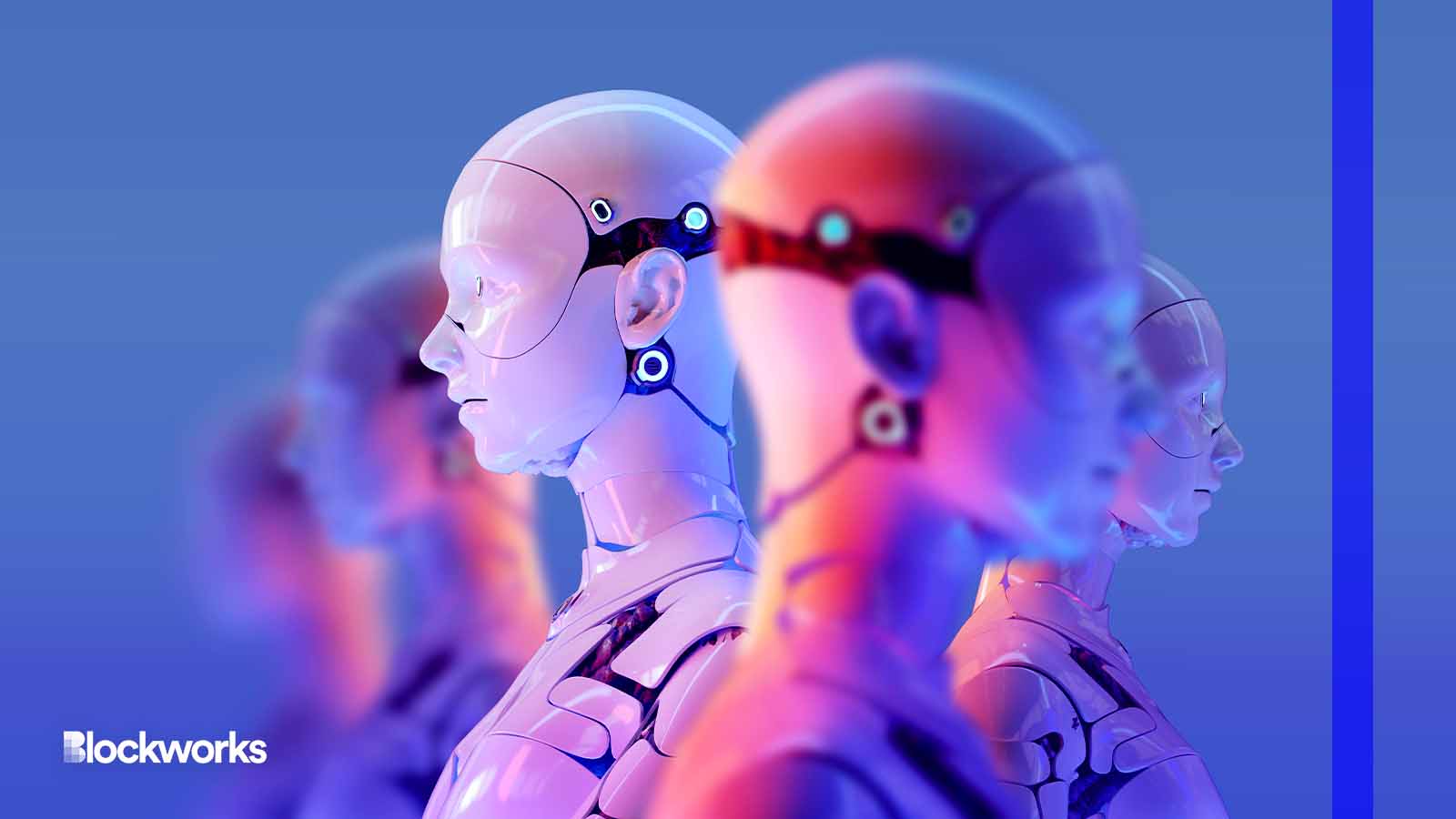AI needs to be decentralized for the same reasons that money needs to be
“You don’t want these powerful models to be controlled by one central entity,” Qiao Wang says

thinkhubstudio/Shutterstock modified by Blockworks
Ask an American-trained artificial intelligence app what the world’s best economic system is and you’re likely to get “capitalism” as your answer. Try the same question with an AI app built elsewhere, and you might get “communism.” It all depends on who influences and controls the data set.
Like today’s monetary system, artificial intelligence (AI) is operated by a few powerful central agents, with popular applications like ChatGPT gathering the bulk of the data and network activity.
“You don’t want these powerful models to be controlled by one central entity,” Qiao Wang says.
The partner at DeFi Alliance talks to Blockworks on the Empire podcast (Spotify/Apple) about the importance of decentralizing AI and how crypto might play a role in the process.
“We just experienced this,” Wang says. OpenAI appears to have “dumbed down their models for all their customers” in a recent update, he says. “They, internally, have the most powerful model still.”
“So they decide they’re the king makers. They decide who gets access to the powerful models and who doesn’t.”
Along with this centralization of power comes the issue of privacy. “Today, when you interact with ChatGPT, you send them a lot of personal data and they know everything about you,” Wang says. “It just doesn’t feel great.”
The most intuitive way to solve the AI centralization problem, Wang says, is with “Edge AI”: “running an open-source model on your local device.”
“All the compute happens on your local device within an open-source piece of software rather than being run on the cloud at OpenAI.”
By doing so, the user “owns the model,” Wang says, holding their data privately on a local device rather than sending it into the cloud.
One major problem, as always with decentralization, is speed. “The hardware that’s used for training the LLM [large language models] at OpenAI is way more powerful than the average consumer-grade hardware,” he says.
But maybe decentralized AI doesn’t need to train the same sorts of models, Wang suggests. “We can use the decentralized compute to train smaller models or to fine-tune a large model.”
“If decentralized compute does work,” Wang notes, “it can be a really big idea because there is just a massive shortage of GPUs. So the payoff is very asymmetric, in my opinion.”
The dataset also needs to be decentralized, “because it’s garbage in, garbage out,” Wang says. “If you feed the model training with a very politically biased dataset, then output will be a very politically biased model.”
Crypto x AI could be scary… or kinda cool
Crypto, of course, is all about decentralization. It removes power from central agents and distributes it as broadly as possible. This enables the freedom to overcome censorship and offers privacy and independence from controlling forces.
The technology could play a role in decentralizing AI computing, rewarding participants in a consumer-grade network for contributing their computing power, for example. Blockchain tech could also prove authenticity amid the inevitable growth of deep fakes generated by AI, Wang says. After recording a podcast, he says as an example, the producer could provide a signature on the Ethereum blockchain to prove the source’s legitimacy.
With the advent of AI-generated deep fakes, Wang says “this will be a very important application, especially with the elections coming up next year.”
Crypto can provide “checks and balances” to prevent undesirable exploitations of AI, he says, but it could also bring its own set of concerning problems. “Fundamentally, AI agents are programmable,” Wang says, “so they can leverage other interfaces to do things that they want.”
“One of the interfaces that they can use is the blockchain and they can do this permissionlessly. So for example, they can use ETH as the AI-native money or they can interact with DeFi, or they can play games.”
“They can do that permissionlessly, and no one can stop them. So that can get a little bit scary.”
“Currently, AI agents don’t do much, but if you give them the ability to do permissionless programming on-chain and give them an unstoppable form of money, which is, for example, ETH in this case, I don’t know what they’re going to do with this type of capability.”
On the other hand, Wang argues that the crypto industry potentially stands to greatly benefit by embracing AI, enabling possibilities with trading, for example. “Speculating is the one thing that crypto really enables for the mainstream.”
“It’d be really fun for crypto consumer products to embrace that, to try things that are related to speculation, to hyper-financialization.”
“DeFi summer worked,” Wang says, “because it unapologetically embraced speculation and hyper-financialization. DeFi summer was a game.”
Get the news in your inbox. Explore Blockworks newsletters:
- The Breakdown: Decoding crypto and the markets. Daily.
- 0xResearch: Alpha in your inbox. Think like an analyst.






